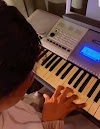### Why Nobody Wants to Employ Piano Players😭😭😭😭😭😭😭😭😭😭
It’s often said that pursuing a career in music is fraught with challenges, and for piano players, the road can seem particularly arduous. The stereotype persists that piano players are unemployable, confined to a narrow niche where opportunities are scarce and competition is fierce. In a world driven by technology, finance, and other more 'practical' professions, the image of the piano player as a struggling artist is all too common. This perception suggests that piano players have little to offer in terms of stable, long-term employment.
However, this image couldn't be further from the truth. Piano players are, in fact, employed in a wide array of sectors across the globe, showcasing their versatility and indispensability. Let’s explore the numerous roles piano players fulfill and the vibrant employment landscape they navigate.
### The Ubiquity of Piano Players in Various Sectors
1. **Entertainment Industry**:
- **Bars and Clubs**: Piano players create ambiance and entertain patrons in countless bars and clubs worldwide. Their live performances are often the highlight of an evening out.
- **Concert Halls and Theaters**: They perform as soloists or as part of orchestras, providing music that ranges from classical to contemporary.
- **Cruise Ships**: Many cruise lines employ piano players to perform for guests, offering music that enhances the travel experience.
2. **Hospitality and Tourism**:
- **Hotels and Resorts**: Luxurious hotels and resorts hire piano players to perform in lobbies, restaurants, and lounges, contributing to an elegant and relaxing atmosphere.
- **Events and Weddings**: Piano players are in high demand for private events, including weddings, corporate gatherings, and parties, where they provide both background music and featured performances.
3. **Religious and Community Institutions**:
- **Churches and Places of Worship**: Many religious services incorporate piano music, with piano players leading congregations in hymns and providing musical accompaniment for various ceremonies.
- **Community Centers**: Local community centers often host musical events and classes where piano players teach and perform.
4. **Education and Academia**:
- **Schools and Universities**: Piano players work as educators, teaching students of all ages how to play and appreciate music. They also perform in school concerts and recitals.
- **Music Schools**: Specialized music schools and conservatories employ piano players as instructors and performers.
5. **Healthcare**:
- **Hospitals and Care Facilities**: Piano music is used as a therapeutic tool in hospitals, hospices, and care homes, where it helps to soothe patients and improve mental health.
### The Entrepreneurial Spirit of Piano Players
Beyond these traditional roles, many piano players create their own employment opportunities. They are often self-employed, running private studios where they offer lessons, creating online content, or performing at private events. This entrepreneurial spirit not only sustains their careers but also generates jobs for others in related fields, such as event planning, sound engineering, and music production.
### The World Without Piano Players
Imagine a world devoid of piano music. The silence in bars, the void at weddings, the absence of melodies in churches, and the lack of background music in hotels and restaurants would create an unrecognizable and far less vibrant world. Piano players enrich our lives in countless ways, providing the soundtrack to our celebrations, comforting us in times of sorrow, and enhancing our daily environments. Their contributions are indispensable, and the world would be profoundly less joyful without them.
Piano players are far from unemployable; they are indispensable. Their talents permeate every corner of our world, enhancing our experiences and creating opportunities for others. To support and celebrate piano players, share this message with five groups and follow Vicpiano for more insights and inspiration.










0 Comments